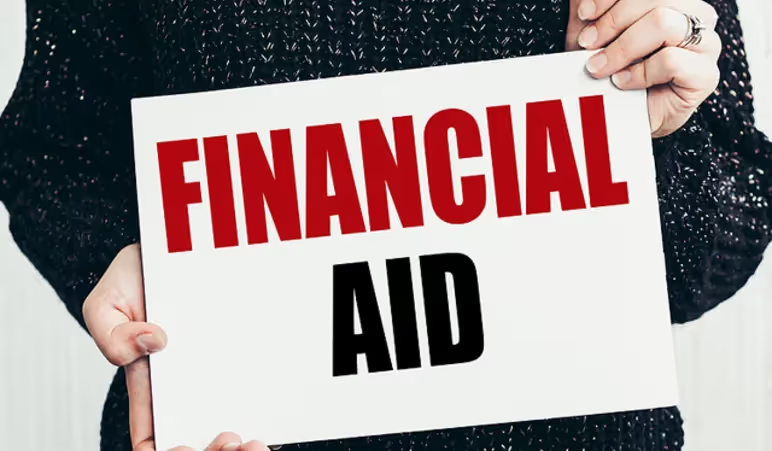Essential Tips for Completing the FAFSA: Items You Should Never Include
Completing the Free Application for Federal Student Aid (FAFSA) is a critical step in securing grants, scholarships, work-study, and federal student loans. Knowing what information to provide—and what to keep off your form—can make the process smoother, speed up financial aid decisions, and avoid delays. This guide will walk you through what not to include on your FAFSA form, ensuring you only enter what is required for the best possible outcome.
Common FAFSA Mistakes: What Not to List as Income or Assets
Including more information than necessary can inadvertently lower your eligibility for financial aid. Here are examples of income and assets you should not include on your FAFSA:
- Retirement Accounts: Do not list balances from your 401(k), IRA, Roth IRA, pension, or other qualified retirement plans.
- Primary Residence Value: The equity or market value of your primary home should not be included as assets.
- Family Farm (If You Live There): If your family both owns and lives on the farm, you do not need to include its value.
- Life Insurance Policies: Cash value or the face value of life insurance policies are exempt from FAFSA asset reporting.
- Personal Items: Cars, clothing, furniture, and other possessions are not considered assets for the FAFSA.
- Employer Benefits (Non-Taxable): Non-taxable benefits like health savings accounts or flexible spending accounts are not required.
Do Not Report Non-Required Sources of Income
Certain types of income do not need to be counted towards your FAFSA:
- Non-Taxable Social Security Benefits: If Social Security is not taxed, do not include these payments.
- Child Support Paid Out: Only report child support you receive, not what you pay to others.
- Veterans Education Benefits: Education benefits for veterans or their dependents should not be counted as income or assets.
- Stimulus Checks or Emergency COVID Relief Funds: These are not considered income for FAFSA purposes.
- Supplemental Security Income (SSI): SSI benefits are excluded.
Exclusions: Don’t Add These to Your FAFSA Asset Details
When filling in asset information, remember these do not count:
- Personal Residence Value: Do not include your family’s main home value or mortgage details.
- Family-Owned Small Business (With 100 or Fewer Full-Time Employees): If your family owns and controls more than 50% of the small business and employs 100 or fewer people, don’t list the business’s net worth.
- Custodial Accounts for Other Children: Report only the assets for the student in question, not siblings.
- Financial Accounts Not Belonging to the Student/Parent: Only include funds you or your parents legally control and use.
Understanding Parent Versus Student Information
Clarity in whose information to list is essential. Avoid these errors:
- Do not include non-custodial parent’s income if your parents are divorced or separated and do not live together.
- Do not add grandparents’ or other relatives’ assets unless they are your legal parent or guardian.
- List only your household members as dependents; extended family members who do not live in your home should not be counted.
Correct Documentation and Proof: What’s Unnecessary on FAFSA
FAFSA does not require you to submit:
- Physical copies of tax returns (unless selected for verification)
- Bank statements or W-2 forms (just provide data, not actual documents)
- Visa or citizenship certificates (unless specifically requested)
Only submit further documentation to schools if they request it during their verification process.
Related Search Queries: What Not to Include on FAFSA
- What not to report on FAFSA?
- Do I include my car’s value on FAFSA?
- Does FAFSA need my parents’ house value?
- Should I report retirement accounts on FAFSA?
- Which assets are excluded from FAFSA?
Frequently Asked FAFSA Questions
Should I list retirement savings on FAFSA?
No, do not include the balance of any retirement account—such as a 401(k), IRA, pension, or 403(b)—when filling out your FAFSA. These are not counted as assets for federal student aid purposes.
Does FAFSA take my house into account?
No, your primary residence's equity or value is not counted as an asset when completing the FAFSA.
Do I need to report life insurance on FAFSA?
No, the cash value or face value of life insurance policies are excluded from FAFSA's asset calculations.
Is Social Security income reported on FAFSA?
Social Security income is only reported if it is taxable and included on your tax return. Non-taxable Social Security benefits and SSI should not be reported as income.
What if I include too much information on the FAFSA?
If you accidentally report more information than required, it may reduce your financial aid eligibility. You can correct your FAFSA by logging in and updating the incorrect sections as soon as possible.
Encouragement for the FAFSA Journey: Keep It Simple and Accurate
Completing the FAFSA form doesn't have to be overwhelming. Focus on what is required and leave out assets and income types that don’t count toward financial aid calculations. This approach helps schools get a clear picture of your true financial need and maximizes your chances to receive grants, scholarships, and loans.
If you have questions about specific assets or reporting situations, talk to your school’s financial aid office. That way, you can ensure your FAFSA form is correct, and you won't leave money on the table due to reporting mistakes.











.svg)



